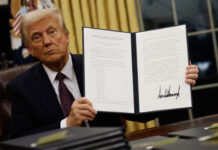
[miningmx.com] – CONSPICUOUS by its absence in the commodity market turmoil of the last week has been the reaction in the gold price, say analysts who believe the metal has currently lost its safe-haven status.
“One of the interesting developments despite the Greece crisis and China uncertainty has been the failure of any rally in gold prices. In fact, gold prices yesterday (July 7) flirted with their year lows,” said Goldman Sachs in a morning note to clients.
“This is an indication that even in a risk-off environment investors are not seeing gold as a safe-haven and rather prefer parking their money in US and German bonds and the US dollar,” the bank said.
The Hang Seng is down just over 5% today after China suspended trading in about half its companies amid slow rate of domestic growth and 30% meltdown in equities in the last month – a contagion exacerbated by the non-reaction to the government’s stimulus package earlier this week. The Nikkei, meanwhile, is 3% lower.
In Johannesburg, mining shares were mashed. Glencore was down to its IPO levels having lost 7% in a day, while Anglo American and Lonmin were 6% lower. BHP Billiton, African Rainbow Minerals and Kumba Iron Ore were all heavily hit. The latter has lost 20% of its market value in seven trading days, equal to some R11.6bn.
Amid all this, the gold price simply ticked down. It was about $14 per ounce lower this morning and is $3/oz down over the last 30 days.
These should be the times when the gold index benefits, especially the more leveraged stocks such as Harmony Gold. Instead, Harmony is 8% and 10% weaker over the last seven and 30 trading days while the gold index is only 25 points higher, virtually flat over the last seven and 30 days.
According to Macquarie Research, gold’s lack of response to the Eurozone crisis and China’s slowing economy has been puzzling especially as bullion clearly benefited from the “first stirrings of the Eurozone crisis” in 2010 and 2011.
It believes a combination of three factors are behind gold’s malaise. One is that the perception of crisis is not so great with investors. While Chinese equities are 30% down in the last month, they are still 15% higher since the start of the year.
And whilst the prospect of Grexit is perhaps rightly described an economic disaster of sorts, the country only accounts for 2% of the Eurozone’s gross domestic product and 0.3% of global GDP.
Macquarie then posits as counter-argument. It acknowledged that perhaps Grexit is a true disaster event, but then argues that this kind of economic and financial crisis is not the right type of crisis for gold to flourish.
That’s because it and the weakness in Chinese equities, are both deflationary in effect; whereas gold builds momentum as a consequence of inflationary events.
Thirdly, the factors negatively affecting commodities such as copper and platinum group metals have also been affecting gold which raises the question as to whether gold is more of a commodity than markets are prepared to admit.
Said Macquarie: “None of these are exclusive, and the most likely explanation is that all of them have played a role.
“They also suggest that gold can still act as a safe-haven, though the conditions in which it is likely to do so are narrower than many had thought,” it said.
The outlook for gold in this scenario would not appear to be strong. “Our commodities team remains bearish on gold as a commodity and sees the prices trading below $1,100/oz over the next two years,” said Goldman Sachs in its report.
Events in China may yet give the scale of problems in which gold would thrive as set down by a Financial Times article which suggested that the suspension of shares in China was driven by the companies themselves as managements had pledged shares as collateral for personal loans.
Said Investec Securities, with perhaps the soundest advice: “If this proves to be true the knock-on effects to the Chinese economy do not bear thinking about. Maybe we should just go the pub now..”.










